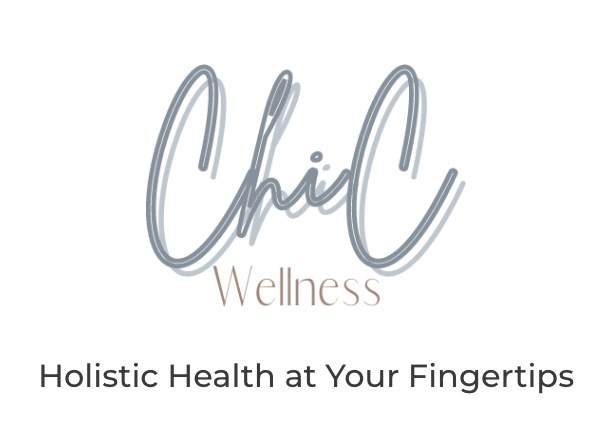Proper nutrition is vital for good health and a full life, and it is an important aspect of Oriental Medicine (OM), albeit it is frequently disregarded. At its foundation, food’s function is to feed the body and sustain health and vigor. It is a kind of preventive medicine. The vast majority of today’s ailments are chronic and easily avoidable. Approximately 75 percent of healthcare expenditure is spent on treating avoidable illnesses, while approximately 12 percent of the adult population in the United States has chronic health issues. Proper nutrition in the form of a lifestyle diet should be essential when it comes to boosting well-being or addressing bodily disharmonies.
Nutritional treatment is typically highly efficient at treating common illnesses based on an OM diagnosis, such as qi deficit or blood insufficiency, although it is not always sufficient. This is often encountered in diagnosis such as Qi stagnation or blood stasis. Nutritional treatment, on the other hand, maybe an effective complementary therapy when combined with other OM techniques such as acupuncture or medicines practiced by traditional Chinese medicine doctor. The nutritional ideas mentioned in this brochure may be applied to any sort of cuisine or cooking method.
This book is meant to assist you and your patients in developing appropriate eating habits and beginning the road to a healthy lifestyle. It is vital to realize that no one diet is suitable for everyone. These suggestions are guidelines, not regulations, and are intended to help in health and well-being, but may need to be changed to best meet individual needs and requirements. It is preferable to work with your practitioner, who can correctly diagnose and provide nutritional guidance according on the presenting OM pattern or diagnosis.
Table of Contents
ToggleEating Habits in General
- Eat in a peaceful and pleasant environment, and don’t hurry through your meal.
- Avoid intensive interactions at mealtime, such as watching television or reading.
- Food that is fully chewed promotes spleen qi.
- Don’t eat late at night.
- Avoid excessive fasting and overconsumption.
Foods to Stay Away From
- Avoid raw, cold, and iced foods and drinks.
- Excessive dairy consumption
- Foods that are oily, greasy, or fried
- Refined sugar should be avoided, as should extremely sweet foods such as fruit.
- carbohydrate refinement
- Excessive alcohol consumption
- Excessive intake of meat
Dietary Guidelines for the Day
Kidney Nutrition
A healthy diet protects and supports the kidney and its capacity to operate effectively. Kidney is the basis of yin and yang. A healthy diet allows the Kidney to support and affect the yin and yang of the whole body, with yin energy nourishing, sustaining, and moistening the body and yang energy warming, invigorating, and moving the body. Kidney yang is the root of yang, bringing energy and warmth to the whole body and allowing appropriate operation. Because the kidney hates cold, eating aggressively chilly meals depletes renal yang and impairs its capacity to warm the whole body yang. More specifically, the kidney yang may be interpreted as digestive fire in the digestive process. When the digestive fire is strong and healthy, food is successfully turned into qi and blood. If the digestive fire is weak, it cannot supply enough warmth and energy to the digestive process, resulting in diarrhea, bloating, low appetite, and dull stomach ache.
The Kidney is the source of life, or original qi, and is commonly referred to as the “Root of Life” because it stores and manages the jing, or essence of our physical body. Jing is made up of prenatal jing that is inherited from the parents and stored in the kidneys, as well as postnatal or acquired jing in the form of qi, and sustenance is taken from food through the spleen and stomach, and from air via the lungs. This nutritious essence benefits the whole body, with the excess being deposited in the kidney. Prenatal jing cannot be replaced or restored, but it may be saved by healthy nutrition and lifestyle, with postnatal jing loving and supporting the prenatal jing. In situations of congenital insufficiency or constitutional weakness caused by insufficient prenatal jing, it is critical that the body be maintained and supplemented as much as possible by postnatal jing.
Cooking meals over extended periods of time at lower temperatures, such as stews and bone broths, may be very useful for kidney support. Avoid raw and cold meals and beverages, as well as ice water. Eat less raw foods, such as salads, throughout the winter.
Foods to Eat to Help Your Kidneys
- broths made from bones
- Celtic sea salt or real salt: aids adrenal health, but use sparingly.
- Lobster, smoked fish, oysters, salmon, shrimp, tuna, and venison are all options.
- lentils, millet, oats, quinoa, black sesame seeds, chestnuts, walnuts
Avoid:
- Artificial sweeteners, sugar
- Coffee, booze
- Foods that are excessively processed
- Excessive salt consumption, even table salt
*Excessive eating *Eating late at night
Liver Supplementation
Nutrition may have a significant impact on the liver’s capacity to operate effectively. When considering digestion and the liver, the first thing that springs to mind is the liver overacting on the spleen and stomach, delaying digestion and hindering nutritional absorption. What we often overlook is how the spleen and stomach digest food and how this plays a key role in giving the liver with adequate nutrients in the form of qi obtained from food. If the liver does not get enough nutrients or the proper sort of nourishment, imbalance and discord will result. Similarly, an adequate diet may aid in the resolution of pre-existing imbalances.
Nutritionally, it is critical to strike a balance between gaining adequate energy and avoiding anything that will overexcite the liver, since this will deplete the liver’s energy as well as the spleen’s and stomach’s energy. It is critical to avoid stimulants such as nicotine and coffee. Because the feeling of rage is directly linked to the liver, alcohol should be consumed in moderation or, for some, avoided entirely. Some spicy and pungent foods might be beneficial in moderation because they can aid to improve qi movement, which is frequent with liver abnormalities. However, too much of this may also be a detriment. It is also critical to avoid items that clog the liver, such as saturated fats, hydrogenated fats, excessive quantities of nuts, and highly processed meals. Eating habits may also stagnate and congest the liver, so avoid skipping meals, eating hastily, overeating, eating late, or eating while emotionally distressed. Relax and appreciate the dinner you worked so hard to create.
Foods to Eat to Help Your Liver
- cruciferous vegetables, beets, carrots, chives, blueberries, goji berries, grapefruit, and strawberries
- venison, venison liver, venison eggs (especially if there is deficiency)
- Crab, crayfish, lobster, mussels, oysters, shrimp, squid, trout, whitefish flax, pine nuts, sesame cayenne pepper, garlic, onion, vinegar, turmeric (careful with heat signs)
- the oil of olives
- Krill oil, cod liver oil (increases anti-inflammatory omega 3 fatty acids)
- water with chrysanthemum tea, green tea, lemon or lime
Avoid:
- spicy and hot meals (in excess)
- meals that are greasy, fatty, oily, or fried
- alcoholic beverages, coffee, caffeine, sugar, processed foods, and refined foods
Cardiovascular Nutrition
The heart is in charge of the blood and blood arteries, as well as the storage of shen (spirit). Heart nutrition leads to a long and healthy life. The heart controls blood flow and circulation. A regular heartbeat, with a smooth and equal pace and rhythm, requires an abundance of heart qi and blood to regulate circulation.
The shen is kept in the heart. When the shen is in balance, the intellect is sharp and clear, the physical body is energized, and the spirit is serene and tranquil. When the shen is disrupted, it causes restlessness, sleeplessness, poor memory, worry, and panic. When the shen is low, joylessness and lusterlessness reign. To correctly house and anchor the shen, the heart needs qi and yin. Proper diet may help to sustain the blood and yin of the heart, as well as the shen. Avoid energetically hot foods like ginger, garlic, wine, and coffee to calm the shen. Stress and rage may easily worsen this heat. Damp and phlegm may also have a negative affect on the heart and shen. By reducing damp-forming items from the diet, such as dairy and sugar, you may assist maintain optimal heart function and a healthy shen. It is recommended to cook items at high heat for a short period of time, with a mild seasoning and spice.
There is a link between the heart and the stomach. The stomach divergent meridian leads to the heart, which is why you may have dreamed-disturbed sleep or insomnia after eating heavy meals or late at night. When dealing with sleep problems, examine both the stomach and the heart. The easiest method to avoid these problems is to change your eating habits; avoid overeating and eat smaller meals, avoid eating late at night, utilize spices like anise, ginger, or mint to improve digestion, minimize tension, and relax when eating. Additionally, brief fasts of 18 to 24 hours might be effective in relieving food stagnation.
Recommendations for Foods to Calm the Shen
Celery, cucumber, lettuce, mushrooms, lemons, mulberries, and schisandra berries are all examples of vegetables. Seeds of chia, seeds of jujube, brown rice, oats, whole wheat, cow and goat milk, ghee basil, chamomile, and dill.
*A basic diet is recommended. *Light fasting (18-24 hours) improves mental clarity and relaxes the mind.
Avoid:
- spicy, fatty meals
- artificial sweeteners, processed sugar
- foods that are excessively processed
- coffee, booze
- *Excessive eating *Eating late at night
Spleen And Stomach Nutrition
Because they play critical roles in the digestive process, the spleen and stomach are the most crucial organs to support with nutritional treatment. Disharmonies of the spleen and stomach are common and can usually be treated together.
Spleen
The spleen is responsible for feeding and digestion. It generates energy from food and water, which is the source of acquired Qi. The spleen, together with the stomach, is in charge of energy absorption, distribution, transformation, and transportation. The spleen’s health determines how well nutrients are absorbed from diet. When the spleen is working properly, a person will have a lot of energy, a decent appetite, and a healthy digestion. Chronic tiredness and poor digestion symptoms such as abdominal bloating, excess gas, diarrhea or loose stools, nausea, low appetite, and so on will be present when the spleen is dysfunctional. If people with disharmonies in this system wish to overcome their health difficulties, they must adopt good eating practices into their lives.
Dietary therapy are often highly effective for the spleen. Mildly sweet meals like chicken, vegetables, and grains are generally beneficial to the middle burner; however, excessive sweet may be damaging to the spleen. Avoid sugar and overindulging in naturally sweet foods such as honey and maple syrup. Cold meals constrict and stagnate the middle burner, halting digestion, and should be avoided. Furthermore, people who lack a strong middle burner often have low digestive fire and should avoid cold meals as they will worsen the problem, and instead consume more warming foods. Foods that are easy to prepare and have a moderate flavor and spice are ideal. Make basic recipes that are cooked at a modest temperature and time. Don’t overindulge or overeat. Moderation is essential. Flesh stock, or stock created from bones that still have meat on them, might be helpful. Soups in general are recommended since they are simple to digest. Grains were formerly healthy, but due to contemporary pressures, grains should be reduced for most persons with spleen disharmonies.
Another important role of the spleen is to regulate bodily fluids. When the spleen Qi is depleted, the transportation and transformation functions are hampered, resulting in damp-phlegm buildup. Raw meals, cold foods and beverages, fruits, salads, dairy, and sugar all contribute to and sustain damp conditions. Keep starchy carbs to a minimum if you have spleen insufficiency with damp. Pay special attention to the items on the avoid list.
Stomach
The stomach is linked to the spleen and plays an important role in digestion. Its primary role is food absorption, separating the pure from the turbid, which travels to the spleen and lung, and the pure from the turbid, which goes to the small intestine.
The stomach may be harmed by dryness and heat. With stomach diseases, hot acrid meals such as coffee and alcohol, as well as spices such as curry, garlic, and pepper, should be avoided. Take your time while eating, eat often, consume warm meals, and avoid eating late at night.
Lung Supplementation
Nutrition treatment may help avoid pulmonary disharmonies as well as cure existing ones. The lungs are vulnerable to Qi and yin shortages, as well as excesses of phlegm, dryness, wind-heat, wind-cold, and toxic-heat.
The regulation of Qi and breathing is one of the most critical functions of the lung. Nutritional support and strengthening of the lung Qi and yin may assist with a variety of features of lung disease.
1) Treating symptoms such as shortness of breath, dyspnea, a weak voice, and shortness of breath.
2) Strengthening the exterior may aid in the prevention of external pathogenic invasions such as the common cold or allergies, as well as the resolution of current wind infections.
3) Improving lung function may aid in the diffusion of Qi, moistening the body and reducing dryness. The spleen may be the cause of phlegm production if it is weak or overworked. In place of a fine mist, mucus is delivered to the lungs. If the lungs are unable to spread it throughout the body, it accumulates in the lungs, causing wheezing, dyspnea, shortness of breath, and other symptoms.
A healthy diet may aid in the resolution of chronic phlegm and the prevention of additional buildup.
To help the lungs, eat easily digestible meals that are fresh and gently prepared, generally with less water and at lower temperatures. This improves food nutritional value and absorption. Over-taxation is avoided by eating smaller meals at more regular intervals. Lung deficiency commonly pulls on and depletes the kidney and spleen, hence foods that are healthy to the spleen and kidney are frequently employed to assist the lung. In the event of lung pathology, remember to check the spleen and kidney to determine whether they, too, need assistance.
Foods to Eat to Help Your Lungs
Cauliflower, leeks, horseradish, onions, radish, watercress almonds, almond butter/milk chile, curry, ginger, pepper spicy beverages such as ginger tea and yogi tea.
Avoid:
Salads and fruits are examples of raw, cold foods. Dairy, greasy and fatty meals, and foods that might weaken the spleen are examples of phlegm-forming and spleen-weakening foods. cold sugary foods and beverages
About The Author
My curiosity about life and longevity led me to Traditional Chinese Medicine school and later in life in becoming a Doctor of Chinese Medicine. As a licensed acupuncturist and herbalist, my work includes collaborating with people to resolve a wide range of health challenges including fibroids, emotional stress, adrenal fatigue, diabetes, thyroid imbalance, and fertility. My focus is to deepen my understanding of the way in which I relate to myself with others and the world. My exploration as an entrepreneur, community builder, traveler, and the lifelong student has helped me cultivate my skills as a practitioner.
Using the art of Chinese Medicine as my tool, I gently guide, nudge, and aid one’s body and mind to find its own balance. From there the intelligence of the body knows what to do next. This is what the healing process has taught me. I see myself as the tuning fork for my clients.
I am here to hold space. My role is to aid you in your return to inner harmony, emotionally, physically, and spiritually well-being, in tune with our true nature so that we can realize our life’s passion without limitations.
Let’s journey together.
DISCLAIMER
This Information provided by AntonikaChanel LLC on Antonikachanel.com is for general informational purposes only. Everything material on the Site is supplied “entirely”. We make no representations or warranty of any sort, regarding the adequacy or completeness of the content. This website is under no responsibility for any loss or damage arising from the use of this site or reliance on any information provided on the site.


